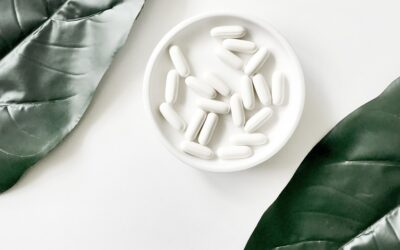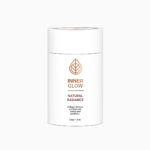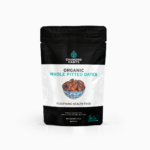In keeping with the policy here at Changing Habits of providing you with vital information regarding your health, we have great pleasure in forwarding you this article that was published in the Sydney papers on the 31st October this year.
Danny Rose October 31, 2010
AAP
A mineral deficiency which can dumb down a whole population is evident and possibly rising in Australia, latest research into iodine in newborns has shown.
Iodine deficiency can lop 10 to 15 points from an affected person’s IQ, according to the World Health Organisation (WHO) which also ranks Australia among about 50 countries known to have the deficiency.
A study which focused on almost all babies born in Victoria from 2001 to 2006, has again found clear signs of the deficiency and that it may have gotten worse.
About 26,000 of the 368,000 newborns, about seven per cent were found to have elevated concentrations of thyroid-stimulating hormone (TSH) caused by the body’s compensatory response to a poor intake of iodine.
“Our analysis of neo-natal TSH concentrations, representing 95.5 per cent of Victorian children born during 2001 – 2006, indicates the Victorian population is iodine deficient,” according to the study by Dr Ashequr Rahman, who is studying at Monash University, and research colleagues.
“… This result is consistent with three smaller Australian studies in Sydney, in NSW, which used newborn TSH data.”
The NSW-based studies found 5-8 per cent of newborns from 1998 to 2000 were iodine deficient.
The WHO considers a population to be iodine deficient if more than three per cent of neonatal blood samples show elevated TSH concentrations.
Looking at when Victoria’s iodine deficient babies were born, they accounted for about four per cent of births in 2001 rising to more than nine per cent in 2006.
This was a “more than twofold increase over five years”, the researchers warned, as part of a call for improved monitoring of iodine levels in newborns.
“We suggest that neonatal TSH concentrations in all states of Australia be analysed as soon as possible, and that this analysis should be come a regular part of neonatal screening in Australia,” Dr Rahman said.
The research is published in the latest edition of the Medical Journal of Australia.
Iodine is important for essential hormone development in the human body. Inadequate intake of dietary iodine can lead to an enlarged thyroid gland (goitre) or other iodine deficiency disorders.
Our bodies need iodine to make thyroid hormones. The thyroid is a gland in the throat that regulates many metabolic processes, such as growth and energy expenditure. The two main thyroid hormones, thyroxine and tri-iodothyronine, are synthesised from the amino acid, tyrosine, and from iodide.
The thyroid hormones regulate the body’s metabolic rate and promote growth and development throughout the body, including the brain. If there isn’t enough thyroid hormone circulating in the blood, the brain sends a chemical message to the thyroid gland, which then releases a measured dose of these hormones. If a person’s diet is too low in iodine, the brain keeps sending chemical messages to the thyroid in vain. In an attempt to make more thyroid hormone, the gland gets larger and larger. This overgrowth of the thyroid gland is called a goitre. Long term deficiency can be serious.
An enlarged thyroid gland, or goitre, isn’t the only side effect of inadequate iodine in the diet. Other symptoms include dry skin, hair loss, fatigue and slowed reflexes.
In the developing fetus, baby and young child, the effects of iodine deficiency are serious, including stunted growth, diminished intelligence and retardation. Lack of iodine is a major problem in developing countries and is considered to be the world’s number one cause of preventable intellectual disability in children. Vegetarians may also be at risk of iodine deficiency if they do not eat seafood. Instead they can get their iodine from iodised table salt or seaweed. A study published in Sep-Oct 2003 Annals of Nutrition and Metabolism showed that 25% of the vegetarians, 80% of the vegans and 9% of those eating a mixed diet had low iodine status.
Remember…. eat real butter, real chocolate, drink real milk and have real salt and seaweed!
Happy Changing Habits from the team at Changing habits
Source: Danny Rose AAP News 31st October 2010








0 Comments